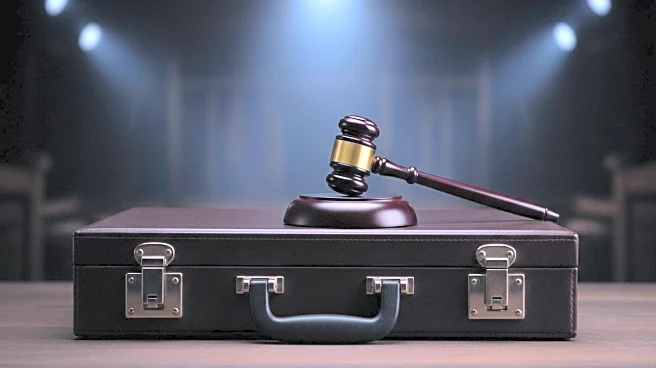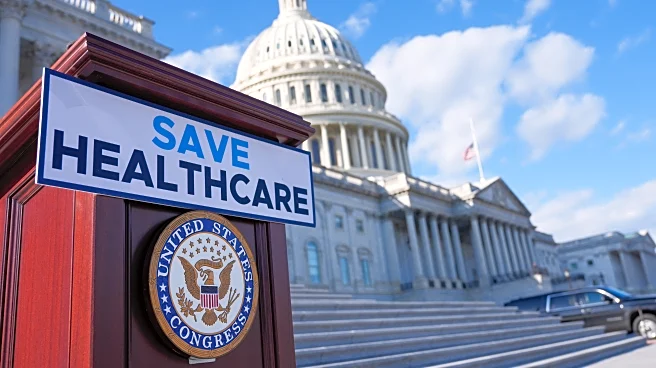What's Happening?
James Comey, the former Director of the FBI, is set to be arraigned on charges of providing false statements and obstructing a congressional proceeding. The charges are linked to his 2020 congressional testimony, where he allegedly lied about his knowledge of a leak of classified information. This development follows President Trump's dismissal of Comey in 2017, which occurred during an investigation into Trump's campaign. The indictment against Comey was challenging to secure, with one interim US Attorney resigning due to pressure to bring charges. Lindsey Halligan, a White House aide with no prior prosecutorial experience, was appointed as interim US Attorney for the Eastern District of Virginia shortly before presenting the case to a grand jury. Comey is expected to enter a plea during the arraignment, and a trial date may be set.
Why It's Important?
The arraignment of James Comey is significant as it underscores the ongoing political tensions and legal battles involving high-profile figures from the Trump administration. The case highlights the contentious relationship between President Trump and Comey, which has been marked by accusations of political vendetta. The outcome of this case could have implications for the credibility and reputation of the Department of Justice, as well as for the broader political landscape. If convicted, Comey faces a maximum of five years in prison, which could further polarize public opinion and impact future political and legal proceedings involving former Trump administration officials.
What's Next?
The next steps in this legal process include Comey's arraignment, where he is expected to enter a plea. The presiding judge may also set a trial date. The defense is likely to challenge the validity of the charges, potentially arguing that they are politically motivated. The appointment of Lindsey Halligan as interim US Attorney could also be scrutinized, as her lack of prosecutorial experience and the circumstances of her appointment may be questioned. The case will likely attract significant media attention and could influence public perception of the justice system's impartiality.









